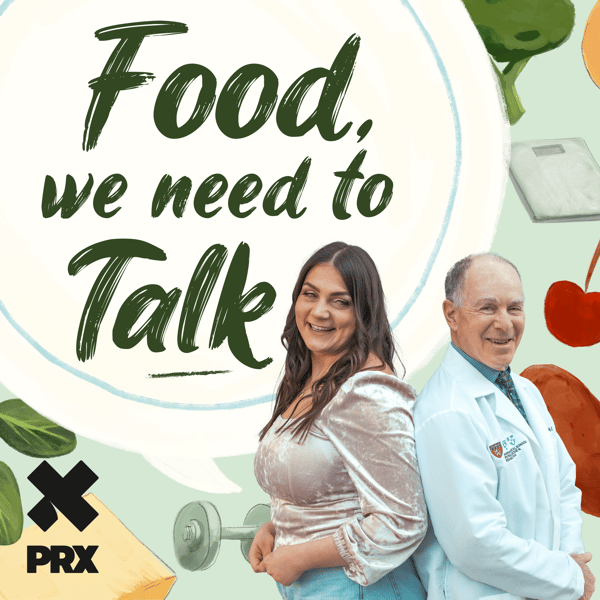Don’t Fall for Fake Science: What to Look for in a Study
Food, We Need To Talk
Juna Gjata
4.8 • 2K Ratings
🗓️ 30 June 2025
⏱️ 49 minutes
🧾️ Download transcript
Summary
In this episode, we’re diving into one of the most important questions in health and wellness: how do you know which science to trust? We break down how to tell the difference between a high-quality study and total BS, how to actually read a scientific paper, and what terms like “randomized controlled trial,” “p-hacking,” and “meta-analysis” really mean. You’ll learn the red flags to watch out for, the hierarchy of scientific evidence, and why some studies never get published at all. This is the ultimate crash course in spotting bad science—and understanding the good stuff. If you’ve ever felt overwhelmed by conflicting headlines or confused by research jargon, this episode will help you make sense of it.
Sign up for our newsletter here!
For weekly episodes, come join the Foodie Fam!
Check out our book!
Chat with us on IG @foodweneedtotalk!
Be friends with Juna on Instagram and Tiktok!
Transcript
Click on a timestamp to play from that location
| 0:00.0 | Welcome to another episode. Today we are doing something a little bit different. It's just going to be Eddie and I. |
| 0:07.9 | Well, we've done that before. Solo Dolo. Yeah, we have to look before. But I don't think we've ever really like delved into, all right, where do you guys learn all this stuff? And how do we know that what you're saying is real? |
| 0:20.5 | I know you guys how do you |
| 0:21.4 | know to trust us you don't is the end I'm just kidding but we are going to really try today to show you |
| 0:28.1 | how to know when science is being conducted correctly and what scientific papers and what studies |
| 0:34.8 | to look at because we talk about studies all the time. |
| 0:38.0 | We have incredible scientists on the show. |
| 0:40.3 | But if you guys ever want to look at things yourself or you get our newsletter and there's |
| 0:44.0 | studies there and you want to know like, how do I know which studies to trust? |
| 0:49.0 | This is the episode for you. |
| 0:50.8 | Disclaimer, this is also our nerdiest episode of all time. |
| 0:54.7 | It's also a chance to give you the power to look at the studies yourself. This is not |
| 1:00.9 | forbidden knowledge. No. This is for you to read it and go, okay, I see where it comes from. I agree |
| 1:08.0 | or I disagree. I'm going to do thus and such. I understand, you know, |
| 1:12.7 | why there's a controversy now. It's not as complicated as it seems once you learn some of the |
| 1:19.1 | terms, and that's what we're going to do in this episode. This is everything that I learned that |
| 1:24.5 | was useful in college in like one episode, you guys. This is like all you need to know about reading scientific papers. |
| 1:30.9 | So today, if you want to know how to know which science to trust, how to know which papers are BS, |
| 1:37.6 | and how you can find anything that you're looking for in a study, in a scientific paper, this is the episode for you. |
| 1:46.4 | I'm Yuna Jata. |
| 1:47.7 | And I'm Dr. Eddie Phillips, Associate Professor at Harvard Medical School. |
| 1:51.4 | And you're listening to Food We Need to Talk, the only podcast that has been scientifically |
... |
Please login to see the full transcript.
Disclaimer: The podcast and artwork embedded on this page are from Juna Gjata, and are the property of its owner and not affiliated with or endorsed by Tapesearch.
Generated transcripts are the property of Juna Gjata and are distributed freely under the Fair Use doctrine. Transcripts generated by Tapesearch are not guaranteed to be accurate.
Copyright © Tapesearch 2025.

